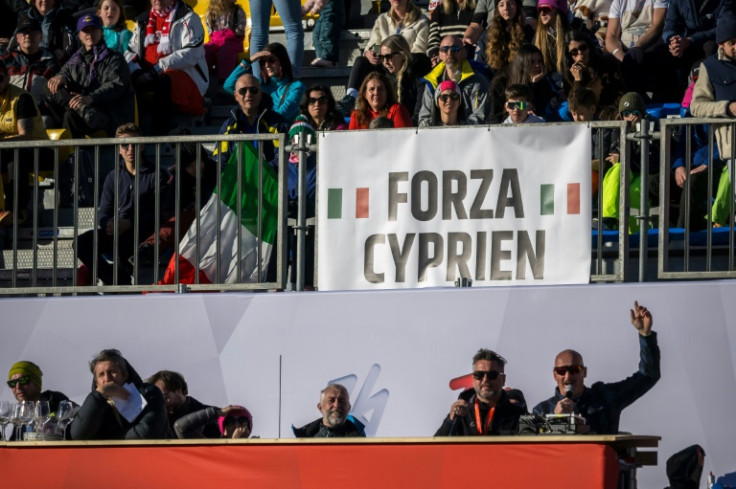French Downhill Ace Sarrazin Out Of Intensive Care

French downhill specialist Cyprien Sarrazin is to be repatriated after coming out of intensive care in an Italian hospital where he had undergone surgery for head injuries, the French Ski Federation (FFS) announced Thursday.
The 30-year-old was airlifted to hospital to treat a subdural haematoma last Friday after he crashed into protective netting while training for last weekend's World Cup meeting in Bormio.
"He is stable. He has come out of intensive care and is undergoing regular hospital treatment," French ski team doctor Stephane Bulle said in an FFS statement.
"A scan performed on December 31 paves the way for him to be repatriated on Friday, January 3, and placed in the neurological service in a hospital in Lyon."
Sarrazin enjoyed his best campaign on the World Cup circuit last season, with four victories including a downhill win at Bormio.
Bormio's Stelvio course -- one of the most difficult on the circuit -- is to host the alpine skiing events at the 2026 Winter Olympics.
However, Sarrazin's horror crash and two other serious accidents in training last Friday sparked questions about the preparation of the Stelvio.
Italy's Pietro Zazzi was also taken to hospital by helicopter after suffering a double leg fracture on the piste.
Although Bormio is a staple of the World Cup calendar and has twice hosted the world championships -- in 1985 and 2005 -- it regularly comes in for criticism from skiers.
"They don't know how to prepare a course. They've been preparing courses for 40 years and they don't know how to do anything other than prepare dangerous slopes," Frenchman Nils Allegre told Eurosport after Sarrazin's crash.
"They don't deserve to have the Olympic Games here."
Race director Markus Waldner of the International Ski and Snowboard Federation (FIS) defended the course preparations and said conditions ahead of training had affected the snow.
"Now there's criticism every week: in Gurgl (Austria) the track was too hard, in Levi (Finland) too smooth... We are an outdoor sport," Waldner said after a meeting of team captains last Friday in Bormio.
"The organisers do their best to prepare the slopes as well as possible and (the Stelvio) was prepared as it is every year," he said.
"The problem is that on Christmas Day there was a lot of wind, and we know what wind does. It dried the snow from the bottom towards the top, which explains why the snow was not uniform on the three-kilometre run, which is impossible to make uniform."
© Copyright AFP 2024. All rights reserved.





















